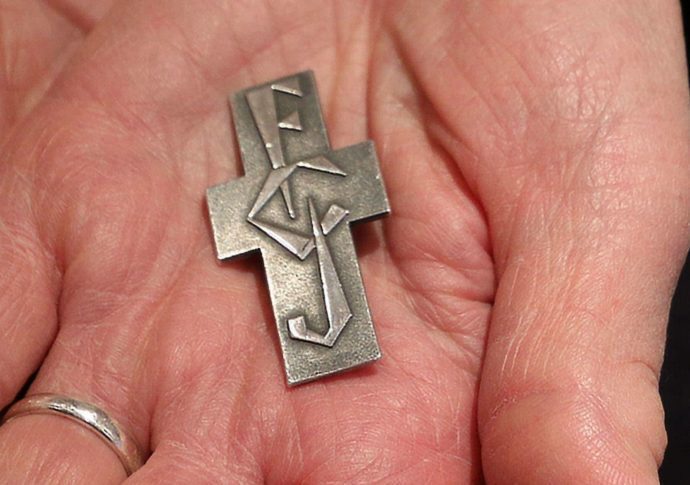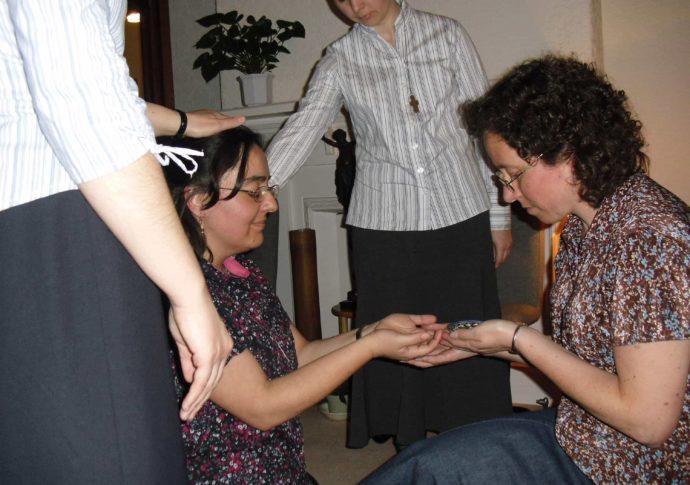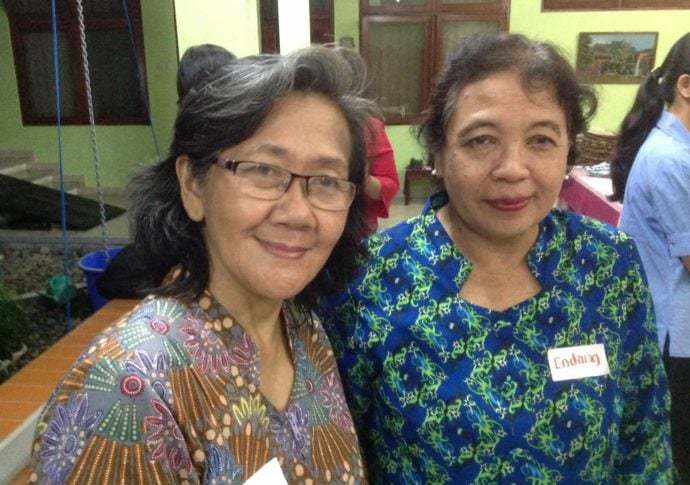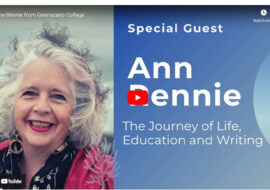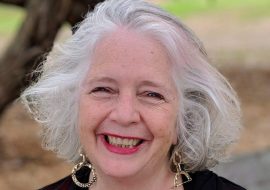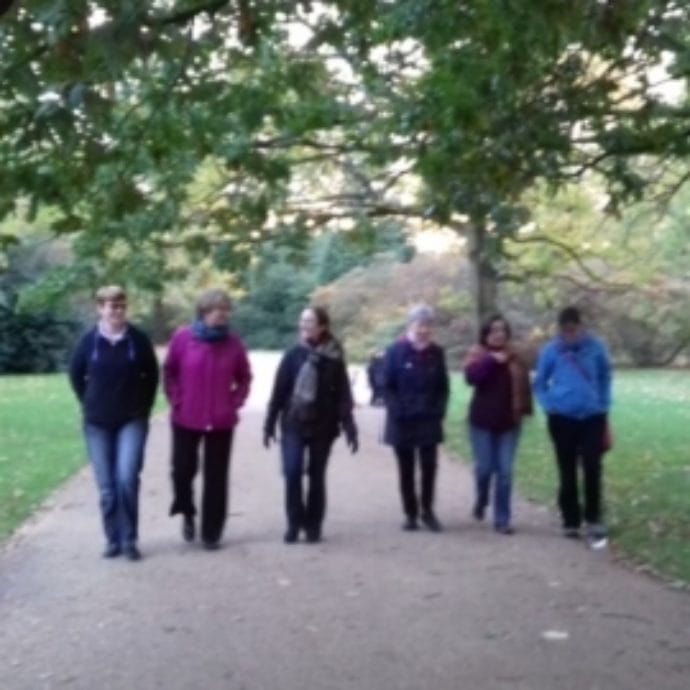This article appeared in the Melbourne Catholic and features FCJ Companion in Mission Ann Rennie, speaking about her teaching journey and about the FCJ sisters who were influential in her young life. Ann teaches English and Religious Education at Genazzano FCJ College
How has the COVID pandemic affected your work and your students?
As I come to end of Term 3, I am so proud of my students for their commitment to each other, their studies and for maintaining a positive attitude despite the lockdown and its impact on their education. They have missed their friends – and teachers – and the daily interactions of the classroom, but have adapted very well to Zoom and the altered learning landscape. In this second lockdown, teachers have been more concerned with wellbeing and I have spoken to my classes about the character-building nature of this time; of the common good and solidarity and of being kind as we cope.The students may forget the curriculum content, but they have begun to learn about themselves because they have needed to be more independent and self-reliant. They have found new capacities, skills and habits that have buoyed them through this period. These are the real life lessons they will take to heart.
For myself, I have been Zooming, blogging and emailing and correcting from the kitchen table and the demarcation zone between home and school has become quite blurred. I realise that the incidental richness of school is irreplaceable in its immediacy of instruction and response and the building of a community through good relationships. I’ve loved it when I’ve received a hilarious email from a colleague that has made me laugh out loud. The staff have looked out for each other whilst looking after the students, especially those in Year 12, whose year has been so challenging. We have maintained our good cheer and consistency – crucial qualities as we support those in our care.
We are looking ahead towards brighter days!
What do you love most about teaching?
I love the opportunity I have to spark interest in words and ideas and to be part of the growing journey to faith and self-reliance. I love the cross-fertilisation of ideas and images and the creative and intuitive worlds merging in empathy, imagination and goodness.
Who were your favourite teachers growing up? Why?
I had wonderful teachers, religious and lay. Miss Eileen Hiatt was a wonderful eccentric who always encouraged me and gave me the best advice for writing- to cut down my tendency towards the florid and flowery. Sister Maryrose Dennehy instilled in me the importance of doing my best and standing by my words. She would read copious Year 12 essays and provide thoughtful feedback for improvement. Sister Joan Cartlidge was always upbeat and cheerful and encouraged activity and teamwork.
Do you remember your first day in a classroom? What was going through your mind as a ‘newly minted’ teacher?
I came to teaching after travelling and some years in the public service so didn’t start till my late 30s. I was lucky to have a job in my old school so was thrilled to be able to do my bit and to honour the legacy of the teachers before me. I felt like I had found my niche. Even, today, there is still something thrilling about having a captive audience and sharing the beauty of the language with students. I love it that I can pass on the things I care about.
How has teaching in a Catholic school influenced your own faith journey?
My own faith has deepened and my commitment to the Ignatian charism of The Faithful Companions of Jesus has become even more a part of my identity. I was quite a pious child and briefly thought about a vocation, but I now know that I am doing God’s work in the classroom when I tend the young hearts, minds and souls in front of me and hope to help them on their own journey to authentic personhood and purpose.
What appeals to you most about teaching a Catholic school? What do you see as the ‘point of difference’ of Catholic education?
My experience is that in Catholic schools there is a real sense of community and that the Gospel values are a framework for attitude and behaviour. Prayer is important and, for me, the idea of helping “to grow the soul” of each student of whatever faith affiliation is truly a privilege. I believe that we can be formative in the creation of character in its conviction and conscience and that we help mould students who will be compassionate Christians and citizens. I think the community in Catholic schools try to follow Jesus’ example of loving God and loving neighbour by being inclusive and emphasising the importance of social justice.
The theme for this year’s Catholic Education Week was ‘The future is listening’. How do you feel about the future of young people today?
I am always hopeful. We live in an increasingly secularised, pluralist world but we have the great chance to influence our young-future makers. We have experience and wisdom and they have time and initiative so if we can harness the best of that inter-generational learning and listening the future will be bright.
Having been a teacher now for 25 years, what advice would you give to your younger self starting out in the system?
Be kind to yourself, ask questions, find a mentor that you feel understands you and will give good advice, engage with the history and tradition of the school, tell your story to students and ask them about theirs. If ambitious, do the study earlier in your career. Remember that you are doing good work even if it is not visible at the time. Be interested in the world around you. Be cheerful and encouraging of students and staff.
Ann has co-authored and compiled with Gemma Thomson (Perth) Prayers and Reflections for Australasian Teachers 2021 available from Garratt Publishing.
We reproduce this interview courtesy of the Melbourne Catholic. Read other contributions by Ann Rennie on our website. Learn about the FCJ Companions in Mission.






